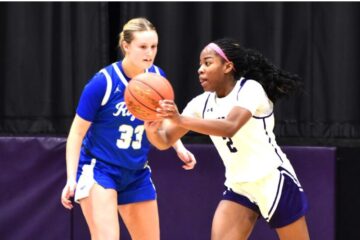As new U.S. instances of Covid-19 keep on flooding, schools are planning for understudies to come back to grounds this fall. As indicated by latest appraisals from The Chronicle of Higher Education, 55% of universities have gotten ready for face to face classes and 30% are proposing a “half and half model” in which a few classes will be instructed nearby.
One piece of nearby life that schools are attempting to explore is sports.
On Thursday, the NCAA, the association which directs understudy competitors, declared its most recent rules for school sports in the period of Covid-19.
The new rules, which are the third the association has discharged about how school athletic offices should address the pandemic,, express that understudies should rehearse outside however much as could reasonably be expected, wear veils when they are uninvolved and lead every day “self-wellbeing checks.”
The NCAA seems to demonstrate that the most recent limitations have been impacted by the absence of a national testing program.
“At the point when the NCAA started conversations about return of game after the wiping out of 2020 winter and spring titles, there was a desire that such an arrival would occur inside a setting that expected syndromic observation, national testing systems and upgraded contact following,” peruses the announcement. “Despite the fact that testing and contact following framework have extended extensively, the varieties in way to deal with reviving America for business and diversion have associated with an impressive spike in cases as of late. This necessitates schools consider an all encompassing procedure that incorporates testing to come back to sports with a high contact hazard.”
The most recent direction likewise orders that understudy competitors who are viewed as at high-danger of presentation to coronavirus (for example on the off chance that they have been in close contact with a tainted individual or have been in an enormous group) must isolate for 14 days and that and all competitors who play high-physical games must be tried for the infection inside 72 hours before contending.
As per the NCAA, ball, field hockey, football, ice hockey, lacrosse, paddling, rugby, soccer, squash, volleyball, water polo and wrestling qualify as high-physical games.
What schools are doing
School games programs the nation over have taken a wide scope of activities to address the coronavirus pandemic.
The fall sports season commonly starts in September, however numerous meetings have deferred the beginning of the period.
Some significant football programs have started pre-season practices and exercises, and numerous competitors have contracted coronavirus since. At Clemson University, at any rate 28 competitors tried positive for Covid-19 subsequent to coming back to grounds for training.
Enormous sports gatherings, for example, the Pac-12 and the Big Ten have reported that they will in any case hold a few games this fall, which means schools, for example, the University of California, Berkeley and the University of Michigan will be relied upon to follow the NCAA’s rules.
However, these meetings have likewise reported they will make changes and have dropped games against groups from different gatherings.
“In light of the patterns and pointers over the previous days, it has become evident that we have to furnish ourselves with most extreme adaptability to plan, and to postpone any development to the following period of come back to-play exercises,” said Pac-12 official Larry Scott in an announcement.
What’s more, as instances of coronavirus rise, some athletic executives are progressively wary that fall sports will proceed consistently.
“With every day where the nation doesn’t show signs of improvement handle on the pandemic, the hazard to the fall season develops,” Notre Dame athletic chief Jack Swarbrick told the Wall Street Journal.
Different schools have preemptively selected to suspend their scholastic projects.
Renowned private universities, for example, Williams College and Bowdoin College have dropped their fall sports seasons and prior this month, the Ivy League made a comparative declaration.
In a letter marked by the leaders of every one of the eight Ivy League colleges, the alliance of schools showed that it was dangerous to continue with the up and coming athletic season.
“With the data accessible to us today in regards to the proceeded with spread of the infection, we essentially don’t accept we can make and keep up a domain for intercollegiate athletic rivalry that meets our prerequisites for security and worthy degrees of hazard, reliable with the arrangements that every one of our schools is embracing as a major aspect of its reviving plans this fall,” peruses the letter.
Much of the time, schools have focused on intently following instances of coronavirus in their networks and it is potential schools, athletic gatherings and the NCAA will move their procedures again before the fall sports season begins.


